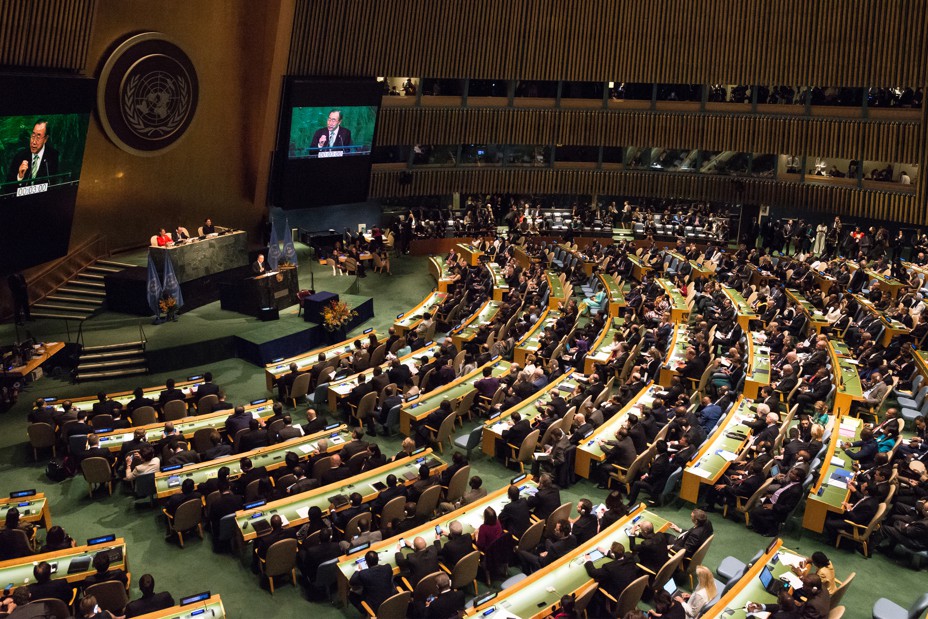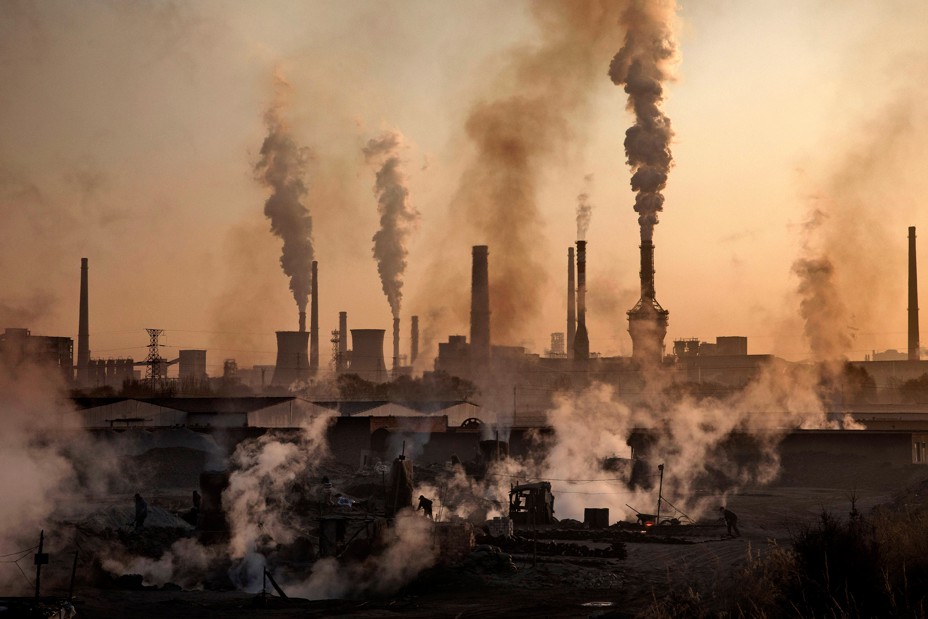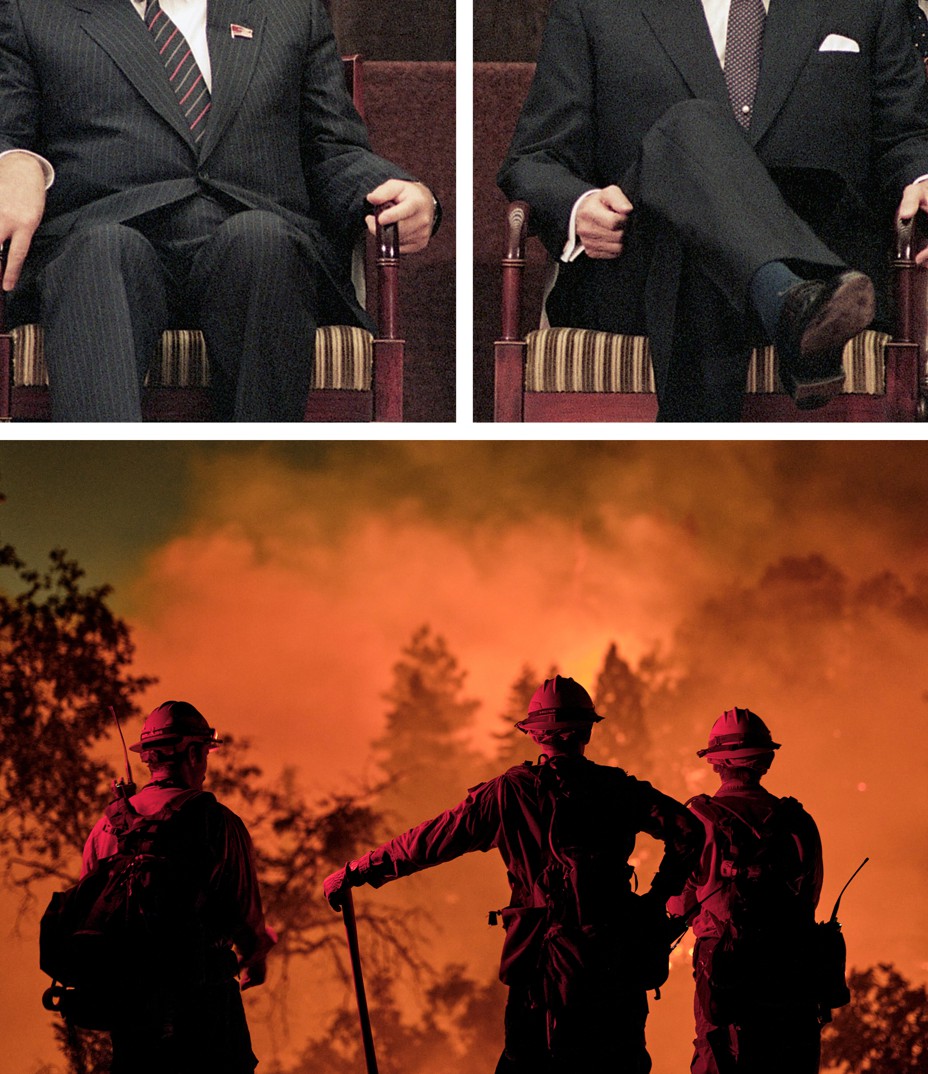The Climate Action We Need
On December 12, 2015, the 195 country parties to the United Nations’ climate body adopted the Paris Agreement on climate change. The accord was historic, sending a message to governments, boardrooms, clean-tech innovators, civil society, and citizens that the leaders of the world had finally come together to combat climate change.
The agreement was groundbreaking in many respects. It cast aside the old paradigm in which climate obligations applied only to developed countries. It articulated strong goals to limit global temperature and greenhouse-gas emissions. It required countries to submit nationally determined targets for reducing emissions, and to do this every five years, with each new target stronger than the previous one. It established a second five-year cycle for a “global stocktake” to see how the world is doing in the aggregate on climate change. It set up a transparency system for countries to report on their progress and for those reports to be reviewed by international experts. And it adopted a hybrid legal arrangement, with legally binding procedural rules complementing the nonbinding emission targets.
Overall, the logic of the Paris Agreement was that the rising force of norms and expectations, buttressed by binding procedures, would be effective. It was based on the belief that countries would act with progressively higher ambition because strong climate action would become ever more visibly important to a government’s standing abroad and to its political support at home. Ideally, an effective Paris regime should strengthen norms and expectations around the world; and, in a mutually reinforcing manner, stronger domestic actions in those countries should strengthen the Paris accord.
Nearly nine years later, how are we doing, and what more do we need to do? To answer those questions, we need to assess the three main factors currently shaping the climate world.
 Representatives of the UN Member States sit in attendance in General Assembly Hall for the climate agreement opening ceremony. (Albin Lohr-Jones / Pacific Press / Getty)
Representatives of the UN Member States sit in attendance in General Assembly Hall for the climate agreement opening ceremony. (Albin Lohr-Jones / Pacific Press / Getty)
First, our scientific understanding of risk keeps advancing, and the actual impacts of climate change keep coming at us harder and faster than expected. In the years following the Paris Agreement, the broadly accepted temperature limit shifted from a rise of “well below” 2 degrees Celsius to 1.5 degrees above preindustrial levels, which would in turn alter the time frame for reaching “net zero” emissions from around 2070 to around 2050. The shift to 1.5 degrees was triggered by the 2018 Special Report on Global Warming of 1.5°C, produced by the UN’s climate-science body, and has been underscored by additional authoritative reports, as well as a cascade of extreme events all over the world.
And those events have just kept intensifying. In 2023, Phoenix had 31 consecutive days of temperatures 110 degrees Fahrenheit or higher. In July that year, water temperatures off the Florida Keys were above 90 degrees. Canadian wildfires burned nearly 45 million acres, crushing the country’s previous record of 18 million. In August 2023, Brazil’s winter, the temperature rose to 104 degrees. In 2022, China was scorched by a searing heat wave that lasted more than 70 days, affecting more than 900 million people. That same year, more than 61,000 Europeans died from heat-related stress. In 2024, more brutal heat waves struck far and wide, the most harrowing of which killed 1,300 people during the annual hajj in Mecca, with temperatures as high as 120 degrees Fahrenheit. If we fail to do what is needed, we will surely compromise our ability to preserve a livable world.
Second, progress in the clean-energy revolution—especially with the technologies of solar, wind, batteries, electric vehicles, and heat pumps—has been nothing short of spectacular since the Paris Agreement, driven in part by the accord itself. And intensifying innovation is driving this revolution forward, including in the “hardest to abate” sectors, such as heavy industry, shipping, and aviation. And the developing clean-technology system is enormously more efficient and less wasteful than the fossil-fuel system.
Third, very real obstacles lie in the way, beyond the inherent challenges of developing breakthrough technology. The main one is that the fossil-fuel industry, which still produces 80 percent of primary energy worldwide, has formidable political clout in the U.S. and abroad, and is doing everything in its power to keep production going as far as the eye can see. Progress on limiting fossil fuels was made late last year at the climate conference in Dubai, which called for a “transitioning away from all fossil fuels … to reach net zero emissions by 2050, in keeping with the science.” Some observers even called Dubai the beginning of the end for fossil-fuel dominance—a hopeful, but at this stage premature, conclusion.
[Read: Trump isn’t a climate denier. He’s worse.]
The central question now is how to overcome the obstacles to rapid decarbonization, acting both within the Paris regime and outside of it. During their 1985 Geneva Summit on the reduction of nuclear arsenals, President Ronald Reagan and Soviet President Mikhail Gorbachev took a walk during a break in the negotiations. As Gorbachev recalled the story, Reagan abruptly said to him, “What would you do if the United States were suddenly attacked by someone from outer space? Would you help us?’” Gorbachev said, “No doubt about it,” and Reagan answered, “We too.” There is a lesson here.
The United States and the Soviet Union were adversaries, armed to the teeth against each other. But as their two presidents imagined an attack from beyond the boundaries of their shared planet, they agreed at once that they would help each other. The international community ought to look at climate change in roughly similar terms, as a threat that demands genuine partnership—something akin to a meteor headed toward Earth, a situation in which we will have the best chance of pulling through if we all pull together.
We need a Paris regime built on partnership, not squabbling. We face a genuine crisis. Too many countries still try to pull backwards to the days of a firewall division between developed and developing countries, in order to deflect expectations about reducing emissions. But a focus on how much individual countries should not have to do is the wrong way to defend against a common threat to our planet. The Paris Agreement ensures that countries can set their own targets, but it calls for an approach reflecting a country’s “highest possible ambition.” Next year, all signatories are expected to announce new emission targets for 2035, and all the major emitters will need to deliver on those commitments if we are to keep alive the goal of net-zero emissions by 2050. This is true for no country more than China, which accounts for some 30 percent of global emissions, more than all the developed countries put together.
China, whose emissions appear to have peaked, ought to adopt a bold target of about 30 percent below that peak level by 2035. But if the past is prologue, China will assert its developing-country status to defend a target far short of that. Yet, for this sophisticated, second-largest economy in the world, with an enormous carbon footprint and unequaled capacity to produce renewable energy, electric vehicles, and so on, hiding behind its traditional status is a tactic past its sell-by date.
 Smoke billows from a large steel plant as a Chinese labourer works at an unauthorized steel factory, foreground, on November 4, 2016 in Inner Mongolia, China (Kevin Frayer / Getty)
Smoke billows from a large steel plant as a Chinese labourer works at an unauthorized steel factory, foreground, on November 4, 2016 in Inner Mongolia, China (Kevin Frayer / Getty)
To make the Paris regime as effective as it should be, we need to reanimate the High Ambition Coalition that was once so pivotal. The coalition still exists, but it lacks the status it had in Paris, where it used its broad-based power of 100-plus countries, “rich and poor, large and small,” to insist that all nations, especially the major ones, pull their weight in reducing emissions. To revive that coalition, poor and vulnerable countries will need to feel fairly treated, and that will require solving the perennial problem of financial assistance.
For a long time in climate negotiations, an angry, trust-depleting relationship between developing and developed countries has persisted over the question of finance. In the past few years, the need to mobilize much larger capital flows to the global South for climate and other global public goods has come into sharper view, with particular focus on deep reform of the World Bank to make it more responsive to the needs of our time.
Finance ministries, including the U.S. Treasury Department, tend to be very cautious about taking the big steps needed to overhaul the World Bank and enable it to finance climate-change mitigation and other public goods. But to borrow a phrase that Larry Summers, my old Treasury boss, has used, the risk of inaction on this project far outweighs the risk of going too far. Moreover, addressing this problem would not only help the countries in need but also have the clear geopolitical benefit of strengthening relationships between the U.S. and its allies and the global South.
I would also seek to use the Major Economies Forum on Energy and Climate Change, an international body launched in 2009 by President Barack Obama, to greater advantage. I would envision an annual, in-person MEF leaders’ meeting to discuss what needs to be done to accelerate decarbonization. I would start each such meeting with a concise report on the latest science, delivered with force by noted experts, so that all leaders are up to date on the urgency of the threat. I would also expand the MEF’s membership to match more closely the G20’s, adding Argentina, Saudi Arabia, Turkey, and the African Union, which would also enable the MEF leaders’ meeting to take place the day after the annual G20 summit.
During the Obama years, U.S.-China climate cooperation was enormously important, a positive pillar in our overall relationship. The relationship is more strained now, but that makes reestablishing as much constructive climate collaboration as possible more vital, not less. This is something that John Kerry and John Podesta, as the leaders of the U.S. international climate effort under President Joe Biden, have both sought to do.
All of these elements are important, but most central to our effort to contain climate change are political will and human motivation. In the last line of his report on 2011’s UN Climate Change Conference, held in Durban, South Africa, the clean-tech blogger David Roberts wrote that “only when a critical mass within [countries] becomes noisy and powerful enough to push governments into action” will we act at the right speed. He was right. Executing the global transition that we need will be a daunting task under any circumstances, but we have the energy and the talent, we know what policies to deploy, and we can afford it. The open question around the world is the human factor.
[Zoë Schlanger: American environmentalism just got shoved into legal purgatory]
Political leaders tend to worry about jobs, economic growth, national security, and the next election—and they hesitate to cross powerful interests. Business leaders worry mostly about the bottom line. And as a matter of human nature, people often find it hard both to grasp the urgency of the climate threat, when most days don’t seem immediately threatening, and to avoid inertia in the face of such an overwhelming crisis or giving in to a vague hope that somehow we will muddle through. Add to all of this the challenge in the U.S. and Europe from right-wing populism, which rebels against science, constraints, and bureaucrats.
We are also slowed down by those who think of themselves as grown-ups and believe that decarbonization at the speed the climate community calls for is unrealistic—the gauzy pursuit of idealists who don’t understand the real world. But look at what the science is telling us, and witness the crescendo of climate disasters: heat waves, forest fires, floods, droughts, and ocean warming. What realistic assessment are the grown-ups waiting for?
 (Top) Former Soviet leader Mikhail Gorbachev and former U.S. President Ronald Reagan at the 1985 Geneva Summit. (Bottom) Firefighters from the Mountains Restoration Conservation Authority monitor a back burn set near the Line fire in the San Bernardino National Forest outside of Running Springs, Calif., early on Sept. 10, 2024. (Bettmann / Getty; Philip Cheung / NYT / Redux)
(Top) Former Soviet leader Mikhail Gorbachev and former U.S. President Ronald Reagan at the 1985 Geneva Summit. (Bottom) Firefighters from the Mountains Restoration Conservation Authority monitor a back burn set near the Line fire in the San Bernardino National Forest outside of Running Springs, Calif., early on Sept. 10, 2024. (Bettmann / Getty; Philip Cheung / NYT / Redux)
In the early days of the coronavirus pandemic, no one could have imagined that entire cities of 5 million to 10 million people would be shut down overnight. That would have seemed absurd—until it didn’t. Faced with the nightmarish prospect of a plague raging through their streets, political leaders in 2020 did the unthinkable. That lesson about decisive collective action should guide our response to the climate crisis. However challenging taking action might be, the question that must be asked is Compared with what?
We need normative change, a shift in hearts and minds that can demonstrate to political leaders that their own future depends on unequivocal action to protect our world. This prescription may seem a weak reed, but new norms can move mountains. They have the power to define what is right, what is acceptable, what is important, what we expect, what we demand.
This kind of shift has already started—decades ago, in fact. The original Earth Day was the product of a new environmental consciousness created by Rachel Carson’s 1962 book, Silent Spring, and of public horror in 1969 that the Cuyahoga River in Ohio was so polluted it caught fire. In September 1969, Senator Gaylord Nelson of Wisconsin began working on a nationwide environmental teach-in, hoping to capture the energy young people had shown in protests over Vietnam and civil rights. On April 22, 1970, some 20 million people attended thousands of events across America, and this galvanizing public demand led in short order to the creation, during Richard Nixon’s presidency, of the Environmental Protection Agency (1970), the Clean Air Act (1970), the Clean Water Act (1972), and the Endangered Species Act (1973), and much more after that.
In 1987, broad public concern about the diminishing ozone layer led to the successful Montreal Protocol. In 2010, after the U.S. embassy in Beijing started to publish accurate, real-time information about dangerous air pollution, the city’s citizens began protesting; even China’s autocratic government responded to the public pressure by taking steps to clean up Beijing’s air.
Many factors can combine to drive normative change: news footage of extreme events; the technology revolution that makes once-niche products mainstream; large-scale civil-society action; markets’ embrace of clean energy and disinvestment from fossil fuels. As the energy analyst Kingsmill Bond has long argued, the approaching peak of fossil-fuel production will bring overcapacity, lower prices, stranded assets, and a rapid shift of investment to new challengers. All of this will reinforce a sense that clean energy works, is growing, is our future.
We need always to keep in mind that climate change is as serious as scientists say it is and nature shows it is. No one who has belittled the issue or assumed that holding the global temperature increase to 2 degrees Celsius, or 2.5 ,or even 3, would be okay has turned out to be right. We should accept that 1.5 degrees is the right goal, and we should stay as close to it as possible.
We should never slip into the comfort of thinking that we can muddle through. The risks are too dire. As Jared Diamond demonstrated in his 2004 book, Collapse, humans have not always coped with environmental risk: Whole civilizations have disappeared because they failed to recognize and address such crises. Today, we have the advantage of extraordinary technological know-how, but we still have the all-too-human capacity to let the polarized, adversarial character of our societies confound our ability to act.
Yet hope has a real basis. The speed of our technological progress gives us a chance to reach our goals or come close. In its Outlook 2023 report, the International Energy Agency declared that, based on what governments are doing and have pledged, global temperature rise can be limited to about 1.7 degrees Celsius by 2100, compared with the 2.1-degree estimate it made in 2021—a striking sign of the pace at which the clean-energy transition is moving. And, of course, we also have the capacity to do more than governments have so far pledged.
The task of building broad, engaged, committed support for climate action is essential. Only that can establish a powerful new norm regarding the need for net-zero emissions. Governments, businesses, and civil societies can do what must be done. And when anyone says the goals are too hard, too difficult, cost too much, require too much effort or too much change, ask them: Compared with what?


